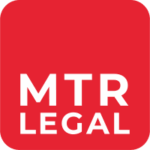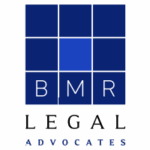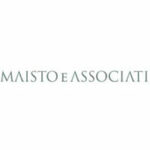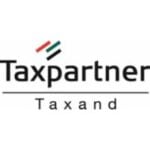-
Is it necessary for a taxpayer to register with the tax authority? Are separate registrations required for corporate income tax and value added tax/sales tax?
In Belgium, individuals are not required to register separately for personal income tax purposes. Foreigners relocating to Belgium must register with the local municipality (commune / gemeente) of their residence, which automatically notifies the tax administration. This civil registration gives rise to a rebuttable presumption of Belgian tax residency. However, as tax residency is ultimately determined based on all relevant facts and circumstances, the taxpayer may provide evidence to rebut the presumption.
Belgian companies and self-employed individuals must register with the Crossroads Bank for Enterprises (Banque-Carrefour des Entreprises / Kruispuntbank van Ondernemingen), which is the central registry for all enterprises in Belgium. Upon registration, they receive an enterprise number, and the Ministry of Finance automatically opens a file for both corporate income tax and VAT purposes. For VAT purposes, however, the business is further required to activate its VAT status by filing form 604A before carrying out economic activities. Foreign companies that have a permanent establishment in Belgium are also required to register with the Crossroads Bank for Enterprises and file a non-resident corporate income tax return. If the permanent establishment’s profits are exempt under a double tax treaty, the foreign company must still file a ‘nil’ return.
For VAT purposes, any taxable person carrying out economic activities in Belgium must register with the VAT administration using form 604A. This registration requirement applies to Belgian companies, self-employed individuals, and foreign companies operating through a Belgian fixed establishment. Non-resident companies performing taxable transactions in Belgium without a fixed establishment may also need to register, either directly (if EU-based) or through a fiscal representative (if established outside the EU).
-
In general terms, when a taxpayer files a tax return, does the tax authority check it and issue a tax assessment – or is there a system of self-assessment where the taxpayer makes their own assessment which stands unless checked?
Corporate and personal income taxes are not based on self-assessment: taxpayers must in principle file an annual tax return, which serves as the basis for the tax assessment note prepared by the administration (avertissement-extrait de rôle / aanslagbiljet). Reported income is presumed accurate unless the administration proves otherwise, while deductions, exemptions and credits must be substantiated by the taxpayer. The filed tax return can be verified by the tax administration, which can carry out corrections within the applicable limitation periods (see below, question 4).
For personal income taxes, the tax administration may issue a proposal for a simplified return (proposition de déclaration simplifiée / voorstel van vereenvoudigde aangifte) pre-completed with information already available to the tax administration (e.g., salary and withholding tax data reported by the employer). If the taxpayer agrees, no further action is required. If not, the taxpayer may amend or reject the proposal.
The tax administration typically issues a tax assessment note by June 30 of the year following the year in which the tax is assessed (e.g., income earned during calendar year 2025 is reported during assessment year 2026, with the tax assessment note usually issued by June 30, 2027). The tax due, if any, must then be paid within two months of receipt of the tax assessment note. Even after issuing the assessment note, the tax administration may still verify the tax return and carry out rectifications within the applicable limitation periods (see below, question 4).
By contrast, VAT and withholding taxes operate under a self-assessment system. Taxpayers (or withholding agents) must therefore calculate, declare, and pay the tax within the statutory deadlines, subject to later audit.
-
Can a taxpayer amend the taxpayer’s return after it has been filed? Are there any time limits to do this?
For income tax purposes, taxpayers may freely correct their filed tax return until the filing deadline. After the deadline has expired, the tax administration generally still accepts corrections as long as the assessment note has not yet been issued (although it is not required by law to do so). However, once the assessment note has been issued, corrections are no longer possible. At that stage, changes can only be made either (i) by filing an administrative appeal (réclamation / bezwaarschrift) within one year (starting on the third working day following the date the assessment note is sent, or within one year following the date the assessment note is available on MyMinfin, or (ii) in certain circumstances (e.g., clerical errors or new evidence outside the taxpayer’s control) by requesting an ex officio relief (dégrèvement d’office / ambtshalve ontheffing) provided that such request is filed within five years from January 1 of the year in which the assessment note was established.
For VAT and withholding taxes, which generally operate under self-assessment, taxpayers may in principle file corrective or supplementary returns within the statutory limitation periods.
-
Please summarise the main methods for a tax authority to challenge the amount of tax a taxpayer has paid by way of an initial assessment/self-assessment.
The tax administration has the right to review and challenge the tax returns, and can in this respect carry out a tax audit by way of requests for information or (un)announced visits to business or private premises of the taxpayer.
A tax audit can result in a closing of the audit without any corrections, in further questions, or in a rectification. In case of a rectification, the tax administration must issue a formal rectification notice, explaining the legal and factual grounds for the adjustment. As a rule, the taxpayer then has 30 days to respond and indicate whether they agree or disagree with the proposed changes. If the taxpayer agrees with the tax administration’s adjustments, a corrective assessment will be issued. If the taxpayer files a notice of disagreement (and indicates not to agree with the corrections), the tax administration must examine the objections and, if it rejects them, send the taxpayer a decision to tax (décision de taxation / beslissing tot taxatie), after which a tax assessment note will be sent.
If the taxpayer does not file a tax return, files it late, or if the taxpayer fails to cooperate with the tax administration (e.g., by not replying to an information request), the tax administration may proceed by way of ex officio assessment (taxation d’office / aanslag van ambtswege). The fact that the ex officio tax procedure is followed implies a shift in the burden of proof: the taxpayer will then bear the burden of proof of the correct taxable income and deductible charges and exemptions (while the taxpayer would otherwise only bear the burden of proof for deductible charges and exemptions).
Even after an initial tax assessment note has been established, the tax administration may still issue additional tax assessment notes if new elements come to light, provided it acts within the applicable limitation periods.
For self-assessed taxes such as VAT and withholding taxes, the taxpayer generally calculates and pays the tax directly. The administration may nevertheless carry out investigative acts and challenge these returns through adjustments or supplementary assessments, again within the applicable limitation periods.
-
What are the time limits that apply to such challenges (disregarding any override of these limits to comply with obligations to relief from double taxation under a tax treaty)?
For income taxes, the standard limitation period for corrections (and audits) is three years as of 1 January of the relevant assessment year where a return has been filed on time and in due form.
The other limitation periods have been subject to various changes over the last couple of years, and are expected to change again by the end of the year (whereby the changes will apply retroactively to assessment year 2023). Below is a simplified overview (whereby the starting point of the limitation period is always 1 January of the assessment year):
Before assessment year 2023 Since assessment year 2023 Since assessment year 2023 if the legislative reform is adopted1 Incorrect tax return 3 years 3 years 3 years Missing (or late) tax return 3 years 4 years 4 years “Semi-complex” tax return (where the taxpayer’s situation has a cross-border dimension that requires additional audit time, e.g. transfer pricing documentation, payments to non-cooperative jurisdictions, DAC6 reporting, claims of treaty-based withholding tax relief, foreign tax credits, or platform operators covered by DAC7)
3 years 6 years 4 years “Complex” tax return (including those involving hybrid mismatch arrangements, the application of controlled foreign company (CFC) rules, or foreign legal constructions subject to the Belgian “Cayman tax”).
3 years; 10 years for foreign legal constructions in tax havens (but prior written notification required)
10 years 4 years Fraud 7 years (but prior written notification required) 10 years (but prior written notification required) 7 years (but prior written notification required) Special extensions exist in certain situations. The administration has for example an additional period of two years after receiving relevant information from abroad (e.g., an exchange of bank account information revealing undeclared foreign income) to assess income relating to the previous five years, or the previous seven years in cases of fraud. It also has an additional 12-month period where an audit uncovers infringements of withholding tax obligations (e.g., failure to withhold tax on directors’ fees) during the preceding five years, or following a legal action or the discovery of evidence showing that income was not declared in one of the preceding five years. The application of these periods is rather strict.
For self-assessed taxes such as VAT and withholding taxes, specific limitation periods apply. In VAT, for example, there is no statutory investigation period in the same sense as for income tax, although – taking into account the principle of the purpose-bound powers of the tax administration – the VAT administration should only be able to carry out investigations within the VAT limitation periods. The VAT limitation periods are to a great extent similar to the income tax limitation periods.
Footnote(s):
1 Based on the latest publicly available texts.
-
How is tax fraud defined in your law?
Under Belgian law, tax fraud occurs when a taxpayer intentionally violates tax laws with the specific aim to deceive the authorities or to cause financial harm. For an act to qualify as tax fraud, two elements must be present: a material breach of tax obligations (such as failing to report income or submitting false information) (i.e., the so-called material element), and a deliberate intent to commit that breach (i.e., the so-called moral element). Accidental violations or violations due to negligence therefore do not fall within the scope of tax fraud. The fraudulent behaviour must be attributable to the taxpayer itself, and not to third parties.
Tax fraud is to be distinguished from tax abuse. Tax fraud refers to an intentional violation of a tax provision (e.g., concealing income or falsifying records), whereas tax abuse concerns situations where the taxpayer formally complies with the letter of the law but uses it in a way that defeats its spirit or purpose.
-
How is tax fraud treated? Does the tax authority conduct a criminal investigation with a view to seeking a prosecution and custodial sentence?
In Belgium, tax fraud may either lead to administrative sanctions or to criminal prosecution. To avoid punishing the same conduct twice (non bis in idem), coordination takes place between the tax administration and the public prosecutor under the una via principle. In practice, most cases are dealt with administratively, while criminal prosecution is reserved for the most serious or complex instances of fraud. Recent reforms have reinforced cooperation by establishing joint investigation teams (MOTEMs), which allow tax officials to assist prosecutors directly in criminal investigations. Evidence collected in this framework may be used both for the tax assessment and in criminal proceedings.
Under the administrative route, once fraudulent intent is established, the tax administration may impose a tax increase ranging from 50% to 200% of the evaded tax, in addition to the principal tax and late-payment interest (see also Q28). Separate lump-sum administrative fines also apply for specific compliance failures. For example, infringements of transfer pricing documentation requirements attract fines ranging from €1,250 to €25,000, escalating more rapidly in cases of bad faith. Failures to comply with DAC6 reporting obligations start at €1,250 for a first incomplete (non-fraudulent) report and may rise to €25,000 for repeated breaches, with higher ceilings of €50,000 or even €100,000 in cases of non-reporting or late reporting with fraudulent intent. In case of tax fraud, longer limitation periods apply (currently 10 years as of assessment year 2023, but expected to go back to 7 years as of assessment year 2023 by the end of the year – see above, Q5).
Under the criminal route, the public prosecutor decides whether to initiate criminal proceedings, after consultation with the tax administration, though the final decision rests with the prosecutor. If prosecution is pursued, the criminal court rules both on criminal sanctions and on the civil tax claim within the same proceedings. Sanctions may include criminal fines and, in the most serious cases, custodial sentences. In practice, imprisonment is rare given the complexity of investigations and the availability of alternative settlement mechanisms. The prosecutor may also close the case by means of a penal settlement (transaction pénale / strafrechtelijke transactie), which typically requires payment of the evaded tax plus an additional amount. Criminal judgments may be appealed to the Court of Appeal, which reviews both fact and law. A further appeal lies to the Supreme Cassation, limited to points of law.
In case of tax abuse, it is up to the taxpayer to prove that the choice of his legal act or set of legal acts is justified by motives other than the avoidance of income tax. If the taxpayer fails to provide such proof, the taxable base and the tax calculation shall be adjusted in such a way that the transaction is subject to taxation in accordance with the purpose of the law as if the abuse had not taken place.
-
In practice, how often is a taxpayer audited after a return is filed? Does a tax authority need to have any justification to commence an audit?
There are no statutory provisions prescribing when or how a taxpayer may be selected for a tax audit. The decision rests entirely within the discretion of the tax administration. In practice, large or internationally active taxpayers are typically audited every few years, whereas small businesses and individuals are audited less frequently, unless specific risk indicators are present.
In recent years, the tax administration has increasingly relied on risk-profiling and data-analytics to select cases. For instance, returns that display inconsistencies or atypical patterns (e.g., unusually large VAT refunds, sudden spikes in related-party charges, or repeated losses without a credible business rationale) are more likely to be examined. Audits may also be triggered by international data exchanges (e.g., reports of undeclared foreign income or assets) or by specialised audit teams focusing on targeted themes (e.g., large enterprises, high-net-worth individuals, transfer pricing or VAT fraud). The administration also operates under performance metrics (KPIs) and internal audit targets. This contributes to a greater volume of audits and corrections, initiated not only on the basis of identified risks but also to meet key performance indicators.
The tax administration is generally under no obligation to justify the initiation of an audit. An important exception applies, however: when the administration seeks to rely on the extended ten-year investigation period reserved for suspected tax fraud, it must first notify the taxpayer of the concrete indications suggesting fraudulent conduct.
-
Does the tax authority have to abide by any standards or a code of conduct when carrying out audits? Does the tax authority publish any details of how it in practice conducts audits?
Yes, the tax administration may only exercise investigative powers granted by law (also including the purpose-bound nature of these powers) and must act in accordance with the principle of good governance, which includes the principles of fairness, proportionality, and transparency. As a result, indiscriminate or speculative investigations (e.g., fishing expeditions) are strictly prohibited.
That said, under the current so-called Antigone doctrine, evidence obtained illegally by the tax administration (or by another authority, e.g., in a criminal proceeding) is not automatically excluded. According to the Belgian Supreme Court, such evidence can in tax matters only be set aside if (i) the violation concerns a rule prescribed under penalty of nullity; (ii) the unlawful collection of evidence is so contrary to what may be expected from a properly acting public authority that the use of such evidence must be deemed inadmissible under all circumstances; or (iii) the use of such evidence would breach the right to a fair trial. Furthermore, the Court has listed a number of criteria that the trial judge may take into account when performing the balancing of interests required in the second and third cases. The Antigone doctrine is highly debated amongst scholars and lower courts.
The recent Belgian federal coalition agreement (2025–2029) announced reforms to improve relations between taxpayers and the administration. Planned measures include: (i) codifying the rules on the use of irregularly obtained evidence whereby the use of irregularly obtained evidence (and the interplay of the Antigone doctrine) will be limited, thereby incentivizing the tax administration to respect the law, (ii) introducing a statutory “principle of trust” so that items accepted in an audit cannot be penalised again if repeated under unchanged law, (iii) adopting a new Taxpayer Charter reaffirming the right to direct contact with tax officials, and (iv) greater transparency through more published circulars, commentary and case law.
The tax administration is also bound by deontological standards. However, a breach of these rules does not automatically invalidate a tax decision. Furthermore, the tax administration does not publicly disclose the methods or procedures it uses during audits.
-
Does the tax authority have the power to compulsorily request information? Does this extend to emails? Is there a right of appeal against the use of such a power?
Yes. Both for income tax and VAT, the tax administration may require taxpayers to provide all records necessary to verify their tax base; fishing expeditions are however not permitted. If records are kept electronically, the cooperation duty of the taxpayer extends to computerised data and digital content, including emails. While the obligation to disclose is broad, it remains subject to exceptions, such as when a document is protected by professional privilege. If a taxpayer alleges that a document is protected by privilege, those documents will need to be provided to the relevant disciplinary authorities (e.g. the President of the Bar for lawyers or the Institute of Tax Advisors and Accountants for accountants). They will then assess the confidential nature of the document. If the disciplinary authorities confirm that a document is protected by privilege, the tax administration cannot look into those documents. Currently, there are discussions between taxpayers and the tax administration where the tax administration contests this principle, but relevant case law to date confirms the position of the taxpayers. The fact that a taxpayer uses a mailbox for both professional and private purposes, is not a reason to refuse access to the mailbox or copies thereof. When the tax administration sees that an e-mail is private, they will remove this e-mail from the file.
The tax administration may also perform on-site audits, although entry into professional (and certainly private/mixed) premises is consensual and non-coercive, meaning that tax inspectors cannot break locks or compel passwords. If the tax administration wants to open filing cabinets or drawers, a reasonable interpretation of the taxpayer’s duty to cooperate implies that they must assist in opening locked cabinets or safes. However, if the taxpayer refuses, the tax administration cannot forcibly access these areas, as a tax visit serves a different purpose than a judicial search. In short, the tax administration may actively search, but only to the extent that the taxpayer does not oppose it.
Consent must be explicit and can be withdrawn at any time; if withdrawn, the visit must stop.
Similarly, for VAT purposes, the tax authority may request access to books, invoices, copies of invoices, and other documents required under VAT legislation or related to the taxpayer’s business activities. This may also include emails, again subject to confidentiality protections. In case of non-cooperation, the tax administration may impose administrative fines or a penalty payment (astreinte / dwangsom). For income tax, it may also resort to ex officio taxation. For VAT, it may draw up a formal report (procès-verbal) and issue a correction notice.
If a taxpayer does not agree with how a tax audit occurred, or with certain investigative measures that the tax administration takes, a so-called “pretaxation” procedure can be launched. In exceptional and urgent cases, summary proceedings (i.e., a fast-track procedure) are also possible, although the judge can only take provisional measures in such case.
-
Can the tax authority have the power to compulsorily request information from third parties? Is there a right of appeal against the use of such a power?
Yes, the tax administration may request information about a taxpayer from third parties (e.g., suppliers, customers, banks, and other entities), subject to exceptions and limitations (e.g., professional privilege). If the third party does not cooperate with the tax administration, it may be subject to administrative penalties or a penalty payment (astreinte / dwangsom).
-
Is it possible to settle an audit by way of a binding agreement, i.e. without litigation?
Under Belgian law, tax obligations are considered matters of public order. As such, neither the tax administration nor the courts have the power to waive or reduce a taxpayer’s legal obligations under the applicable legislation. This means that disputes cannot be resolved through mutual agreement in a way that disregards tax law or alters the applicable rules or amounts due. Any such agreement would be legally void and unenforceable.
However, it is possible for the tax authority and the taxpayer to reach a mutual understanding on purely factual matters, such as the interpretation of documents, the valuation of assets, or the classification of transactions, or on an accepted interpretation of the law. These factual agreements may facilitate the resolution of an audit and help avoid litigation, but they do not alter the binding nature of the law itself. Such agreements can be reached before a correction takes place, during the course of an administrative appeal, but also when the case is already pending before court.
In addition, Belgian law provides for an alternative dispute resolution mechanism, i.e., the Tax Conciliation Service (Service de conciliation fiscal / Dienst voor fiscale bemiddeling). This service is an independent body within the Federal Public Service Finance. It may be seized (i) in income tax matters after an administrative claim (réclamation / bezwaarschrift) has been lodged, or (ii) in collection matters after refusal of a payment plan. Its role is to restore dialogue and seek a pragmatic solution. Its recommendations are non-binding, but they are often followed in practice. The recent Belgian federal coalition agreement (2025–2029) announced a reform to convert this service into a tax arbitration mechanism, available after the administrative phase, with binding decisions, safeguards for independence and impartiality, and cost-shifting to the losing party. This reform is not yet in force, and no further details are publicly known to date.
-
If a taxpayer is concerned about how they are being treated, or the speed at which an audit is being conducted, do they have any remedies?
Yes. Taxpayers usually raise their concerns directly with the tax inspector in charge and his superior and, if that does not work, request the intervention of the Tax Conciliation Service. Taxpayers may also file complaints with the Ministry of Finance’s internal complaints service, the Federal Ombudsman. Taxpayers may also establish direct contact with the Minister of Finance’s cabinet. If an audit involves unlawful processing of personal data, the taxpayer may file a complaint with the Data Protection Authority, which can investigate and sanction the tax administration. Finally, pretaxation or summary proceedings are also possible (see Q10 above).
-
If a taxpayer disagrees with a tax assessment, does the taxpayer have a right of appeal?
A taxpayer has the right to file an administrative appeal (réclamation / bezwaarschrift) with the regional tax director within one year and three working days from the dispatch of the assessment notice. Filing an administrative complaint in principle suspends collection of the disputed tax. The taxpayer may request access to the administrative file and an oral hearing (in general within a period of 30 days). Once the taxpayer was heard, the regional tax director can take a decision (unless if there is a suspension following an intervention of the Tax Conciliation Service). If the regional tax director did not take a decision within a period of six (nine months in case of an ex officio tax assessment) the taxpayer can bring the case before the Court of First Instance (Tax Chamber). If the conciliation service intervenes in the file, the forementioned delays can be extended.
If a negative decision is taken, the taxpayer can bring the case before the Court of First Instance (Tax Chamber) within three months of the decision being sent. The court has full jurisdiction over fact and law and may annul or amend the assessment. Its judgment is appealable to the Court of Appeal within one month after the judgment is served by bailiff, and points of law can be taken to the Supreme Court (Cour de cassation / Hof van Cassatie). Courts may also refer preliminary questions to the Constitutional Court or to the Court of Justice of the EU where constitutional or EU law issues arise.
-
Is the right of appeal to an administrative body (independent or otherwise) or judicial in nature (i.e. to a tribunal or court)?
See Q14.
-
Is the hearing in public? Is the decision published? What other information about the appeal can be accessed by a third party/the public?
During the administrative phase, the process is confidential. There are no public hearings, and administrative decisions issued by the tax administration are not accessible to third parties.
In contrast, during the judicial phase, hearings before the Courts of First Instance, Courts of Appeal, and the Supreme Court are in principle public. A closed hearing may be ordered only in exceptional circumstances (e.g., protection of confidentiality, privacy, or public order). Judgments are pronounced publicly, but they are not systematically published. Many are available through official databases (e.g., on the websites of the Supreme Court or the Constitutional Court) and legal publishers, being anonymized. Parties may obtain an anonymised copy on request. The case file itself – pleadings, evidence, submissions – remains confidential and is accessible only to the parties and their counsel. The recent Belgian federal coalition agreement (2025–2029) announced systematic, free public access to tax case law involving the tax administration. This reform is not yet in force.
-
Is the procedure mainly written or a combination of written and oral?
The administrative phase is a combination of written and oral: the administrative appeal is written, as well as the decision of the tax administration, but oral hearings and meetings are rather common.
The judicial phase is predominantly written, except for the oral pleadings (which are the rule in tax cases). Taken into account the judicial backlog, judges sometimes request for there to be no oral pleadings if the case is sufficiently clear.
-
Is there a document discovery process?
No. Belgian tax law does not provide for U.S.-style discovery. Each party submits the documents on which it relies, and there is no general duty to disclose adverse material. There are two exceptions:
In the administrative phase, taxpayers may request a hearing and obtain access to the administrative file forming the basis of the assessment.
In the judicial phase, the court may, at a party’s request, order the production of specific documents under the Judicial Code, but only if their relevance is established.
-
Are witnesses called to give evidence?
During the administrative phase, the Income Tax Code provides for formal witness testimony procedure, but this procedure is seldom used because of its strict formalities. Instead, inspectors usually conduct on-site visits and record their findings in official reports (procès-verbaux), which may include informal statements made by employees or third parties. These reports carry evidentiary weight, but they are not equivalent to sworn witness testimony. Exception is made for official reports drafted by bailiffs (e.g., a record on the course of events during an audit, recorded in an official report by a judicial officer).
During the judicial phase, all means of proof admitted under civil law are in principle available, except oath, but including witness evidence. However, tax litigation is almost entirely documentary, and courts rarely hear witnesses. Judges rely on written records, contracts, and audit reports, occasionally supplemented by expert opinions in technical cases (e.g., as valuations or transfer pricing). Witness testimony is therefore possible in law but exceptional in practice.
-
Is the burden on the taxpayer to disprove the assessment the subject of the appeal?
No, Belgian tax law applies a shared burden of proof: income declared in a timely and complete return is presumed correct. If the tax administration wishes to issue an additional assessment, it must prove the facts justifying it (e.g., undeclared income, requalification of an abusive transaction, or indicators of fraud). By contrast, the taxpayer must prove deductible expenses, exemptions, or treaty relief. However, if no return was filed, or if the return is manifestly incomplete or inaccurate, the law allows the administration to make an ex officio assessment (e.g., based on presumptions). In that case, the taxpayer bears the full burden of proof.
-
How long does an appeal usually take to conclude?
In the administrative stage, once the taxpayer files an objection against a tax assessment note, the tax director is expected to issue a decision within six months (or nine months in case of ex officio taxation), though in practice, decisions often take longer, especially when negotiations are ongoing. In case of a negative decision, or if no decision is given within six months (or nine months in case of ex officio taxation), the taxpayer may proactively bring the case before the Court of First Instance. If the Tax Conciliation Service is involved, the forementioned limitation periods are as a rule extended (but the intervention of the Tax Conciliation Service can help to obtain a solution sooner).
In the judicial stage, an appeal with the Court of First Instance typically takes 18 to 24 months from filing to judgment, though complex cases may take longer. Further appeal to the Court of Appeal usually requires another 18 to 24 months be it that in practice we have observed significantly longer delays at the Brussels Court of Appeal. A final appeal to the Court of Cassation adds approximately 18 months. Following an annulment of the judgment by the Court of Cassation, the case is sent back to the competent Court of Appeal. The duration of the judicial phase may be prolonged if a preliminary question is referred to the Constitutional Court or the Court of Justice of the European Union. Please note that some judicial districts have a huge backlog, which may impact timelines (e.g., in Brussels, where it sometimes takes up to ten years before fixing a hearing date).
-
Does the taxpayer have to pay the assessment pending the outcome of the appeal?
In principle, when the taxpayer timely files an administrative appeal (réclamation / bezwaarschrift) the tax collector may only enforce payment for the portion of the tax that is indisputably due (incontestablement dû / onmiddellijk verschuldigd gedeelte). In other words, the disputed amount does not normally have to be paid immediately, unless there is a risk to the Treasury (e.g., an impending statute of limitations or bankruptcy) or unless conservatory measures are imposed. The taxpayer may nevertheless choose to pay voluntarily in order to avoid late payment interest if the challenge is ultimately unsuccessful.
In practice, however, some tax collectors start enforcement one month following the expiration of the payment deadline of the assessment notice, even if the one-year deadline to file an administrative appeal has not yet expired. To mitigate this risk, taxpayers often notify the tax collector of their intention to file and request a suspension of enforcement. While most collectors accept such requests, some adopt a stricter approach and require that the complaint be filed within one month following the expiration of the two-month payment period. In such case, a common solution is to lodge a provisional (pro forma) administrative appeal to secure suspension, while completing the substantive complaint later.
The filing of an administrative or judicial challenge suspends enforcement but does not stop the accrual of late payment interest. Taxpayers therefore face two choices. They may withhold payment while the dispute is pending, in which case late payment interest currently accrues at 4% in favour of the Treasury. Alternatively, they may pay upfront to stop late payment interest, and if successful, recover the disputed amount together with moratorium interest, which accrues at 2% from the month following a formal request in the complaint, summons, or petition.
-
Are there any restrictions on who can conduct or appear in the appeal on behalf of the taxpayer?
In the administrative phase, there are no strict restrictions. Taxpayers may act on their own or appoint an authorised representative, such as an accountant, tax adviser, or lawyer. A written power of attorney is in such case usually required, except when the representative is a lawyer.
In the judicial phase, taxpayers can appear and plead in person, but if they choose to be represented, it must be by a lawyer admitted to the Belgian Bar. Lawyers do not normally need a written power of attorney, as their “mandate at litem” covers all acts, except in limited cases, such as recording acquiescence in a judgment (i.e., renunciation of remedies).
-
Is there a system where the “loser pays” the winner’s legal/professional costs of an appeal?
At the administrative stage, there is no loser-winner principle for legal and professional costs.
At the judicial stage, Belgium applies a limited “loser pays” rule. The losing party must pay a procedural indemnity (indemnité de procédure / rechtsplegingsvergoeding), which is a lump-sum contribution to legal costs fixed by law according to the value of the case and adjustable for complexity. Routine costs such as court fees, experts, and bailiffs are also borne by the loser if ordered by the court. Actual lawyers’ fees are not recoverable in full.
In exceptional cases, courts may award an additional indemnity for abusive, vexatious or temerarious litigation, for example where the tax administration pursues a position clearly contrary to established case law of the Supreme Court or acts in bad faith. In rare circumstances, courts have also accepted claims for part of the taxpayer’s internal costs (resources spent by an in-house legal team). In practice, recovery is almost always confined to the statutory indemnity and routine court costs.
If the tax administration wins, the taxpayer pays these costs only when the administration is represented by external counsel; no indemnity is due when the State pleads through its own agents.
-
Is it possible to use alternative forms of dispute resolution – such as voluntary mediation or binding arbitration? Are there any restrictions on when this alternative form of dispute resolution can be pursued?
Throughout the administrative phase, taxpayers may submit a request to the Tax Conciliation Service to avoid judicial proceedings (see Q12 above). Continuing in that direction, the new Belgian Federal government announced it will transform the Tax Conciliation Service into an arbitration service, which will be accessible at the end of the administrative process. As mentioned earlier, this reform has not yet been implemented, and the exact scope of this reform is not clear yet.
In addition, mediation is also possible during judicial proceedings, under the general framework of the Belgian Judicial Code. Courts may refer parties to mediation, or parties may request it themselves. In tax cases, however, this tool is rarely used in practice.
At the international level, taxpayers may rely on mutual agreement procedures (MAPs) contained in double tax treaties, as well as EU mechanisms such as the EU Arbitration Convention on Transfer Pricing and Directive 2017/1852 on tax dispute resolution mechanisms in the EU. These procedures allow disputes between states over double taxation to be resolved through negotiation or arbitration.
-
Is there a right of onward appeal? If so, what are all the levels of onward appeal before the case reaches the highest appellate court.
See Q14.
-
What are the main penalties that can be applied when additional tax is charged? What are the minimum and maximum penalties?
The main administrative tax penalties are tax increases and administrative fines. For income taxes, the tax administration may as a rule impose a tax increase ranging from 10% to 200%, as well as an administrative fine ranging from €50 to €1.250. Other fines may also apply for specific (reporting) violations.
For VAT, the tax administration may as a rule impose a tax increase up to 200% of the unpaid tax and administrative fines ranging between €50 and € 5.000. In case of good faith, the tax increase and fines are reduced according to scales established by Royal Decree, and other remissions (e.g., for purely incidental errors) are also possible.
In cases of tax fraud or other criminal offences, criminal sanctions may apply, including imprisonment and monetary fines (but the non bis in idem principle [See Q7] should then be respected).
In some cases, remission is possible.
-
If penalties can be mitigated, what factors are taken into account?
Mitigation depends mainly on (i) the nature and seriousness of the violation, (ii) whether the infringement is repeated, (iii) the taxpayer’s good or bad faith, and the presence of fraud or intent to cause harm, and (v) whether the dispute concerns a genuine “matter of principle.” In exceptional cases the taxpayer may also justify a request for remission on grounds of equity (demande en grâce / verzoek tot kwijtschelding).
-
Within your jurisdiction, are you finding that tax authorities are more inclined to bring challenges in particular areas? If so, what are these?
Recent practice shows that the tax administration increasingly concentrates its efforts on transfer pricing, substance of holding companies, and international transactions. This is a.o. evidenced by the increased activities and importance of specialized departments established within the FPS Finance for this purpose. Tax inspectors thereby actively exploit the extensive documentation obligations now imposed on multinational groups – master file, local file, country-by-country report – as well as the mandatory schedule to the Belgian corporate tax return identifying payments to entities in low-tax jurisdictions. This enables systematic targeting of intra-group financing structures, service arrangements, and royalty payments.
Similarly, withholding tax matters have attracted heightened scrutiny, particularly since the Court of Justice of the European Union delivered its so-called Danish cases. The tax administration now systematically examines whether recipients of dividends, interest or royalties qualify as the beneficial owner and whether intermediate structures amount to an abuse of law under Belgian or EU standards. The revised withholding tax forms, which require disclosure of treaty-based reliefs and anti-abuse statements, have significantly increased the administration’s data-mining capacity. Also, capital gains on shares (in a private equity context), carried-interest structures and R&D incentives are regularly audited.
Another sensitive area is VAT, as well as customs matters, where the administration has intensified its controls on cross-border transactions, chain supplies, and the use of exemptions. This trend is reinforced by the progressive introduction of mandatory e-invoicing and digital reporting obligations, which provide the tax administration with immediate access to transaction data and allow for targeted audit selection.
-
In your opinion, are there any areas which taxpayers are currently finding particularly difficult to deal with when faced with a challenge by the tax authorities?
Several factors make disputes with the tax administration particularly challenging. First, as a general comment, the growing complexity of Belgian tax law, shaped by overlapping international, EU, and domestic rules generates interpretation issues (e.g., related to the OECD Pillar Two rules). Second, audit practices are often assertive and opaque. The tax administration sometimes relies on broad information requests without clearly identifying the factual or legal grounds of their suspicions, which can amount to fishing expeditions and shift the balance of arms (especially in view of the Antigone doctrine). Third, the administration frequently disputes transfer pricing studies and valuation reports prepared by taxpayers’ experts, preferring its own economic analyses. Fourth, the administration has at times disregarded advance rulings issued by the Ruling Commission, undermining legal certainty and taxpayer confidence. Fifth, the tax authorities exert significant financial pressure on a taxpayer that wishes to contest a tax by (i) requiring that the administrative appeal be filed within a shorter period than one year to avoid enforcement measures, (ii) offsetting tax debts against VAT claims of the taxpayers, and (iii) withholding payments by contracting parties following the publication of the taxpayer on public lists in case of non-payment of the tax debt. Finally, judicial backlog weighs heavily. In some courts, notably the Brussels Court of Appeal, proceedings can, in exceptional circumstances, last more than ten years, discouraging taxpayers from pursuing appeals even with strong arguments.
-
Which areas do you think will be most likely to be the subject of challenges and disputes in the next twelve months?
See Q29 above. In the coming year, disputes in Belgium will concentrate on a few clear themes. International group transactions will be a priority, with audits targeting intra-group financing, royalties, and service charges. Withholding tax will remain contentious, especially on whether recipients of dividends, interest or royalties qualify as beneficial owners. The partial exemptions from professional withholding tax (notably for R&D, shift work and overtime) are already under audit and will generate further litigation. On the VAT side, controls on real estate operations, chain transactions and preparations for mandatory e-invoicing will lead to more challenges. Cross-border issues linked to EU anti-abuse rules will also feature prominently. In the future we also expect litigation relating to the rollout of Pillar Two.
Belgium: Tax Disputes
This country-specific Q&A provides an overview of Tax Disputes laws and regulations applicable in Belgium.
-
Is it necessary for a taxpayer to register with the tax authority? Are separate registrations required for corporate income tax and value added tax/sales tax?
-
In general terms, when a taxpayer files a tax return, does the tax authority check it and issue a tax assessment – or is there a system of self-assessment where the taxpayer makes their own assessment which stands unless checked?
-
Can a taxpayer amend the taxpayer’s return after it has been filed? Are there any time limits to do this?
-
Please summarise the main methods for a tax authority to challenge the amount of tax a taxpayer has paid by way of an initial assessment/self-assessment.
-
What are the time limits that apply to such challenges (disregarding any override of these limits to comply with obligations to relief from double taxation under a tax treaty)?
-
How is tax fraud defined in your law?
-
How is tax fraud treated? Does the tax authority conduct a criminal investigation with a view to seeking a prosecution and custodial sentence?
-
In practice, how often is a taxpayer audited after a return is filed? Does a tax authority need to have any justification to commence an audit?
-
Does the tax authority have to abide by any standards or a code of conduct when carrying out audits? Does the tax authority publish any details of how it in practice conducts audits?
-
Does the tax authority have the power to compulsorily request information? Does this extend to emails? Is there a right of appeal against the use of such a power?
-
Can the tax authority have the power to compulsorily request information from third parties? Is there a right of appeal against the use of such a power?
-
Is it possible to settle an audit by way of a binding agreement, i.e. without litigation?
-
If a taxpayer is concerned about how they are being treated, or the speed at which an audit is being conducted, do they have any remedies?
-
If a taxpayer disagrees with a tax assessment, does the taxpayer have a right of appeal?
-
Is the right of appeal to an administrative body (independent or otherwise) or judicial in nature (i.e. to a tribunal or court)?
-
Is the hearing in public? Is the decision published? What other information about the appeal can be accessed by a third party/the public?
-
Is the procedure mainly written or a combination of written and oral?
-
Is there a document discovery process?
-
Are witnesses called to give evidence?
-
Is the burden on the taxpayer to disprove the assessment the subject of the appeal?
-
How long does an appeal usually take to conclude?
-
Does the taxpayer have to pay the assessment pending the outcome of the appeal?
-
Are there any restrictions on who can conduct or appear in the appeal on behalf of the taxpayer?
-
Is there a system where the “loser pays” the winner’s legal/professional costs of an appeal?
-
Is it possible to use alternative forms of dispute resolution – such as voluntary mediation or binding arbitration? Are there any restrictions on when this alternative form of dispute resolution can be pursued?
-
Is there a right of onward appeal? If so, what are all the levels of onward appeal before the case reaches the highest appellate court.
-
What are the main penalties that can be applied when additional tax is charged? What are the minimum and maximum penalties?
-
If penalties can be mitigated, what factors are taken into account?
-
Within your jurisdiction, are you finding that tax authorities are more inclined to bring challenges in particular areas? If so, what are these?
-
In your opinion, are there any areas which taxpayers are currently finding particularly difficult to deal with when faced with a challenge by the tax authorities?
-
Which areas do you think will be most likely to be the subject of challenges and disputes in the next twelve months?



















